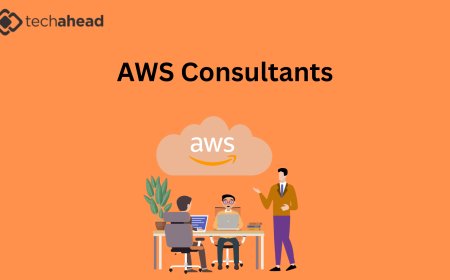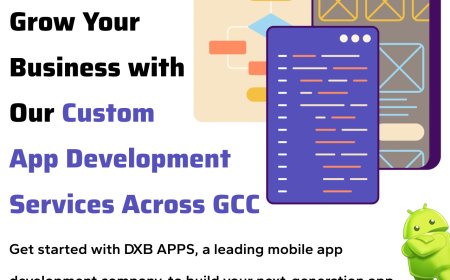Role of AI in SEO and Content Strategy
Introduction: The Intelligent Revolution in Digital Marketing
As we stride deeper into the digital age, artificial intelligence (AI) is not just enhancing technologyits redefining how we think, plan, and execute digital marketing campaigns. Among its most transformative applications lies its integration intoSEO and content strategy. From real-time search trend analysis to automated content generation and predictive user behavior modeling, AI is making SEO smarter, faster, and more intuitive.
This article explores theRole of AI in SEO and Content Strategy, offering insights into current applications, benefits, tools, and future trendsmaking it essential reading for marketers navigating the evolving landscape of search engine optimization.
Understanding the Role of AI in SEO
TheRole of AI in SEOgoes far beyond simple automation. AI tools now have the capability to understand context, user intent, and semantic relationships in content, which directly aligns with Googles evolving algorithms that prioritize search intent and high-quality user experience. Heres how AI is playing a pivotal role:
1. Semantic Search and Natural Language Processing (NLP)
Search engines like Google have moved beyond exact keyword matching. AI-powered algorithms now rely heavily on semantic search and NLP to understand the intent behind queries. Tools such as OpenAIs ChatGPT and Googles BERT help marketers create content that aligns more closely with how users naturally speak and search.
By using AI to analyze large volumes of search data, marketers can identify intent-based keywords, optimize content accordingly, and improve relevancedirectly impacting rankings.
2. Predictive SEO and Search Trend Analysis
AI can analyze historical data and current search behavior to predict future trends. Platforms like BrightEdge and MarketMuse use machine learning to forecast keyword performance and identify emerging topics. This enables content teams to act proactively rather than reactivelystaying ahead of competitors in organic search.
Predictive insights can also help in shaping long-term SEO strategies, especially when launching new campaigns or products.
How AI Enhances Content Strategy
Content creation and planning are no longer just creative endeavorstheyre data-driven, dynamic, and measurable thanks to AI. Here's how AI transforms the content strategy landscape:
1. Topic Clustering and Content Gap Analysis
AI tools can crawl and compare your site with competitors to highlight gaps in content, helping you understand whats missing. Tools like Clearscope, Frase, and Surfer SEO can create detailed content briefs based on top-ranking content, ensuring your articles match (and exceed) industry standards in comprehensiveness and relevance.
AI-driven clustering also helps map out content pillars and supporting topics, allowing for more structured and scalable content planning.
2. Smart Content Generation and Optimization
With tools like Jasper.ai, Copy.ai, and Writesonic, marketers can generate drafts, titles, and even metadata with impressive accuracy. While human editing is still essential for tone and authenticity, these tools accelerate the content creation process dramatically.
AI also supports continuous optimization. Platforms use real-time data to suggest content updates, improving relevance and engagement post-publicationa critical factor in maintaining high SERP positions.
Real-World Applications: AI in Action
Companies worldwide are integrating AI into their SEO workflows. For example:
-
HubSpotuses AI to personalize content and provide dynamic SEO suggestions for marketers.
-
SEMrushandAhrefsare increasingly leveraging machine learning to refine keyword difficulty scores and backlink analysis.
-
NetflixandSpotifyrely on AI-powered recommendation engines that also inform their SEO strategies through behavioral data.
These applications demonstrate the competitive advantage AI deliversnot just in automation but in strategic decision-making.
Benefits of AI-Powered SEO and Content Strategy
Implementing AI in SEO and content strategy offers tangible benefits:
-
Improved accuracy: AI removes guesswork, using real data to guide every step.
-
Time efficiency: Automates repetitive tasks like keyword clustering, SERP analysis, and technical audits.
-
Greater personalization: AI can segment audiences and tailor content recommendations at scale.
-
Enhanced scalability: With AI, teams can create and manage large volumes of content without compromising quality.
-
Ongoing optimization: AI tools offer performance insights and improvement suggestions in real time.
These benefits allow marketing teams to focus more on strategy, creativity, and user engagement rather than manual tasks.
Challenges and Ethical Considerations
While AI offers immense value, its not without challenges. Some of the major concerns include:
-
Over-automation: Relying too heavily on AI can lead to generic content lacking human emotion and storytelling.
-
Data privacy: Using AI often involves collecting and processing vast user data, which must comply with regulations like GDPR.
-
Job displacement fears: As AI takes over technical tasks, concerns about content writing jobs being replaced have grown. However, the demand for strategic thinkers and editors remains high.
Striking the right balance between automation and human touch is essential for ethical and effective use of AI in marketing.
Integrating AI into Your Strategy: Actionable Steps
To start leveraging AI in your SEO and content strategy, follow these steps:
-
Audit your current tools: Identify gaps where AI can enhance performance, such as keyword research, content planning, or analytics.
-
Start small: Use AI for specific tasks like SERP analysis or headline generation before expanding into full-scale content automation.
-
Train your team: Enroll in relevant training programs to build familiarity. AnAdvanced Digital Marketing Courseoften includes modules on AI integration in SEO.
-
Monitor and adapt: Continuously evaluate AI outputs and refine your processes to ensure they align with brand voice and user intent.
The Future of AI in SEO and Content Marketing
Looking ahead, the role of AI will only deepen. Expect to see:
-
Conversational AIintegrated directly into websites, influencing on-site search optimization.
-
Voice search optimizationbecoming standard practice, especially with AI-enhanced NLP.
-
AI-powered video content creationthats fully optimized for SEO.
-
Hyper-personalized content journeystailored in real-time based on user behavior.
As AI becomes more sophisticated, marketers will shift from being content creators to strategic orchestrators of intelligent, data-driven content ecosystems.
Conclusion
TheRole of AI in SEO and Content Strategyis no longer optionalits a defining factor in the success of modern digital marketing. From predicting search trends and optimizing content to streamlining workflows and enhancing user experience, AI is transforming the game at every level.
Embracing AI is not about replacing human creativity, but about amplifying it. As the digital landscape grows more complex and competitive, those who harness the power of AI wisely will stand outnot just in rankings, but in delivering meaningful, user-focused content experiences.

































